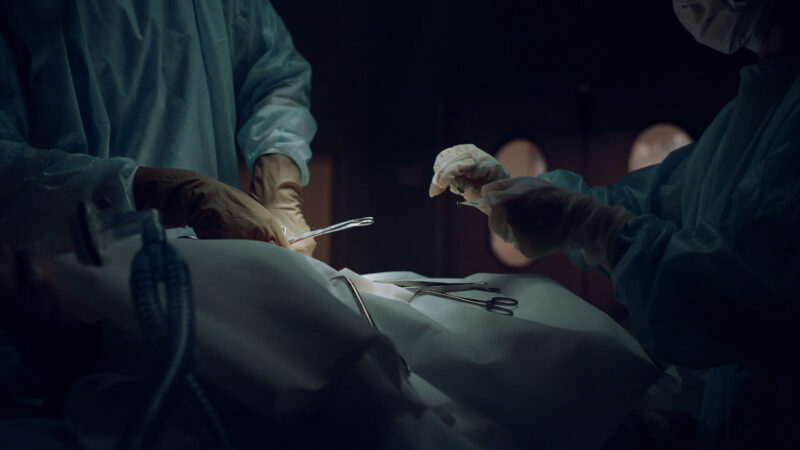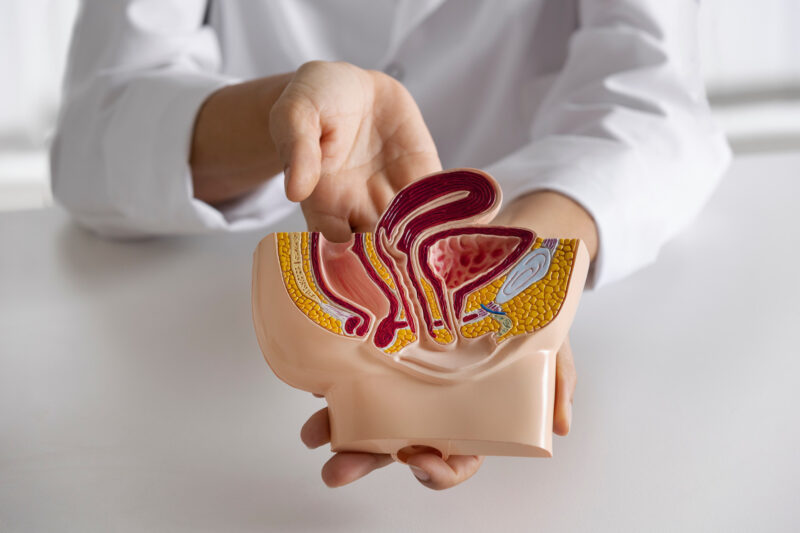When it comes to managing piles (hemorrhoids), selecting the right specialist is crucial for effective treatment and recovery. Piles are a common yet uncomfortable condition that affects many individuals, causing symptoms like pain, itching, and bleeding.
The severity of these symptoms can vary, necessitating different levels of medical intervention. From lifestyle adjustments to surgical procedures, the range of treatment options requires expert guidance to ensure the best outcomes. In this article, we will explore the types of specialists who are best equipped to treat piles.
Doctors That Treat Piles
- Gastroenterologist
- Colorectal Surgeon
- General Surgeons
When to See a Gastroenterologist?

A gastroenterologist specializes in the digestive system, including the rectum and anus, where hemorrhoids develop. You should consider seeing a gastroenterologist if you experience persistent symptoms such as rectal bleeding, pain during bowel movements, or discomfort that doesn’t improve with over-the-counter treatments. Gastroenterologists can perform diagnostic procedures like colonoscopies to rule out other causes of rectal bleeding and provide a comprehensive treatment plan.
They often start with non-invasive treatments, such as dietary recommendations, which include increasing fiber intake to ease bowel movements, and prescribing medications like stool softeners and topical ointments to reduce inflammation. In cases where hemorrhoids are more severe, but not yet requiring surgery, gastroenterologists may employ procedures like:
- Rubber Band Ligation: A minimally invasive procedure where a small rubber band is placed around the base of the hemorrhoid, cutting off blood flow and causing it to shrink and fall off within a week.
- Sclerotherapy: This involves injecting a chemical solution into the hemorrhoid, which shrinks it. It’s generally painless but may be less effective than other methods.
- Infrared Coagulation: This procedure uses infrared light to coagulate the blood vessels feeding the hemorrhoid, causing it to shrink.
When to Consult a Colorectal Surgeon

Colorectal surgeons, or proctologists, are specialists in diseases of the colon, rectum, and anus, making them the go-to experts for severe or complicated cases of hemorrhoids.
You should consult a colorectal surgeon if:
- Your hemorrhoids are large or prolapsed (bulging out of the anus).
- You’ve tried non-surgical treatments without success.
- You experience significant pain, bleeding, or recurring symptoms.
- You have multiple hemorrhoids or associated complications, such as fissures or abscesses.
Colorectal surgeons are skilled in both non-surgical and surgical treatments, including:
- Hemorrhoidectomy: This is the surgical removal of hemorrhoids and is considered the most effective treatment for severe cases. It involves excising the excess tissue that causes bleeding and prolapse.
- Stapled Hemorrhoidopexy: This procedure, often referred to simply as “stapling,” is used for internal hemorrhoids and involves stapling the hemorrhoidal tissue back into place. It’s less painful than a traditional hemorrhoidectomy but has a higher recurrence rate.
- Laser Surgery: A modern technique where a laser is used to precisely remove hemorrhoids with minimal bleeding and faster recovery times. This is especially useful for patients who prefer less invasive procedures.
General Surgeons
General surgeons are often the first specialists patients encounter when they need surgical intervention for piles. While not as specialized as colorectal surgeons, general surgeons are fully capable of performing most hemorrhoid surgeries, especially in cases where the hemorrhoids are not overly complex. You might be referred to a general surgeon if:
- You need a straightforward surgical procedure.
- Your primary care physician identifies hemorrhoids that are not responding to initial treatments.
- You require a general surgical procedure that may include hemorrhoid removal as part of a broader treatment.
Non-Surgical Options for Piles
Not all hemorrhoids require surgery. In fact, many cases can be effectively managed with non-surgical treatments, particularly in the early stages. Here are some common non-surgical options:
- Dietary and Lifestyle Changes: Increasing fiber intake through fruits, vegetables, and whole grains, staying hydrated, and avoiding straining during bowel movements can significantly alleviate symptoms. Regular exercise also helps prevent constipation, a major cause of hemorrhoids.
- Topical Treatments: Over-the-counter creams, ointments, and suppositories that contain hydrocortisone, witch hazel, or numbing agents can provide relief from pain, itching, and swelling.
- Sitz Baths: Soaking the anal area in warm water for 15-20 minutes several times a day can reduce irritation and promote healing.
- Stool Softeners: These can be prescribed to ease bowel movements, reducing the strain on hemorrhoids.
- Minimally Invasive Procedures: As mentioned earlier, procedures like rubber band ligation, sclerotherapy, and infrared coagulation are effective non-surgical options that can be performed by gastroenterologists or colorectal surgeons.
How Laser Treatment Works
Laser treatment for piles is a modern, minimally invasive option that has gained popularity due to its precision and quicker recovery times. Here’s how it works:
Procedure
During the procedure, a laser beam is directed at the hemorrhoidal tissue. The laser’s energy causes the blood vessels in the hemorrhoid to coagulate, which cuts off the blood supply. This results in the hemorrhoid shrinking and eventually falling off. The laser also seals nerve endings, reducing pain post-procedure.
Benefits
- Minimal Pain: Laser treatment causes less trauma to surrounding tissues compared to traditional surgery, leading to less pain.
- Reduced Bleeding: The precision of the laser minimizes blood loss during the procedure.
- Quick Recovery: Most laser treatments are performed on an outpatient basis, allowing patients to return home the same day and resume normal activities within a few days.
- Lower Risk of Infection: The laser’s heat sterilizes the area, reducing the risk of post-operative infections.
How to Get Ready for Your Appointment?
Proper preparation for your appointment with a specialist can ensure you get the most out of your consultation. Here’s what you need to do:
1. Gather Your Medical History

Bring a detailed account of your medical history, especially related to digestive issues, bowel habits, and any previous treatments for piles. This includes any medications, supplements, or over-the-counter remedies you’ve used.
2. List Your Symptoms
Write down all symptoms you’ve been experiencing, including the duration and severity. Be specific about when they occur and if certain activities trigger them. This will help your doctor accurately diagnose your condition.
3. Prepare Questions
- What is the likely cause of my symptoms?
- What treatment options are available?
- Will I need surgery?
- What are the risks and benefits of the proposed treatments?
- How can I prevent future occurrences?
4. Diet and Lifestyle Information
Be ready to discuss your diet and lifestyle, as these are often contributing factors to piles. Your specialist might ask about your fiber intake, hydration habits, and exercise routine, so it’s helpful to have this information prepared.
5. Insurance and Referral Details
Ensure you have all necessary insurance information and any referrals if your insurance requires them. Knowing what your insurance covers will help you avoid unexpected costs.
6. Follow Pre-Appointment Instructions

If your doctor has given any specific instructions before your visit, such as fasting or avoiding certain medications, be sure to follow them carefully. This ensures that any tests or procedures performed during your appointment can be done accurately.
7. Comfortable Clothing
Wear comfortable clothing that can be easily removed or adjusted if a physical examination is needed. This can make the process quicker and more comfortable for both you and your doctor.
8. Bring a Support Person
If you feel anxious about the appointment or might need assistance afterward, consider bringing a friend or family member. They can provide emotional support and help you remember the details of your consultation.
FAQs
What Are the Common Symptoms of Piles?
Common symptoms of piles include bleeding during bowel movements, itching or irritation around the anus, pain or discomfort, swelling around the anus, and the presence of a lump near the anus, which may be sensitive or painful. Symptoms vary depending on whether the hemorrhoids are internal or external.
Can Piles Go Away on Their Own?
Mild cases of piles can sometimes resolve on their own, especially with dietary and lifestyle changes that reduce straining during bowel movements. However, if symptoms persist or worsen, medical treatment is usually necessary.
Is Laser Treatment Safe for All Patients?
Laser treatment is generally safe, but it may not be suitable for everyone. Patients with certain health conditions or those taking blood-thinning medications may need to consider alternative treatments. A consultation with a specialist will help determine if laser treatment is the best option for you.
How Long Does Recovery Take After Hemorrhoid Surgery?
Recovery time varies depending on the type of surgery. For example, recovery from a hemorrhoidectomy may take a few weeks, during which time patients may experience some pain and discomfort. Laser treatments typically have a shorter recovery period, often just a few days.
What Can I Do to Prevent Piles from Recurring?
To prevent piles from recurring, maintain a high-fiber diet, stay hydrated, exercise regularly, avoid prolonged sitting, and avoid straining during bowel movements. These lifestyle changes can help reduce the risk of developing piles in the future.
Conclusion
Choosing the right specialist for treating piles is essential for effective management and recovery. Whether you opt to see a gastroenterologist, colorectal surgeon, or general surgeon depends on the severity of your symptoms and the specific treatment required.
Understanding the available non-surgical and surgical options, including modern techniques like laser treatment, empowers you to make informed decisions about your health.















